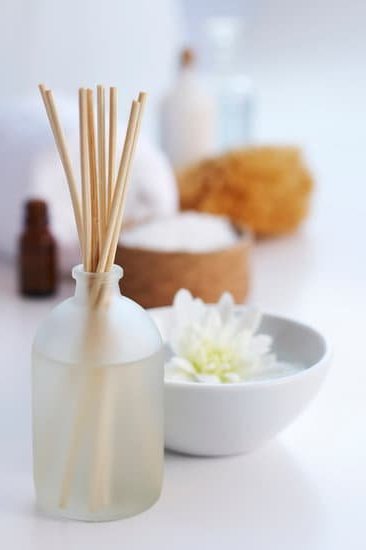Aromatherapy has gained popularity for its natural healing properties and pleasant scents. So, what are aromatherapy oils good for? Aromatherapy oils, also known as essential oils, are highly concentrated plant extracts that have been used for centuries to promote physical and mental well-being. The origins of aromatherapy date back to ancient civilizations like the Egyptians, Greeks, and Romans who recognized the therapeutic benefits of aromatic plants.
The practice of using aromatherapy oils involves harnessing the natural essences extracted from flowers, leaves, stems, roots, or other parts of plants. These oils work by stimulating receptors in the nose which then send messages to the limbic system – the part of the brain that controls emotions and memories. This process triggers different responses in the body, affecting mood, stress levels, and even physical health. Aromatherapy is believed to offer holistic benefits for the body and mind.
Today, aromatherapy oils are widely used in various forms such as inhalation through diffusers or steam inhalation and topical application through massage or baths. People turn to aromatherapy oils for a range of purposes including stress relief, better sleep, skincare solutions, and alleviating physical ailments like headaches or muscle pain. Understanding the types and benefits of different essential oils can help individuals tailor their aromatherapy experience to target specific needs effectively and safely.
Types of Aromatherapy Oils
Aromatherapy oils come in various types, each serving specific purposes when it comes to promoting overall well-being. Essential oils and carrier oils are two main categories of aromatherapy oils that are commonly used. Essential oils are highly concentrated plant extracts that possess therapeutic properties, while carrier oils are mild base oils used to dilute essential oils for safe use on the skin.
Popular Types of Essential Oils Used in Aromatherapy
Some of the most popular essential oils used in aromatherapy include lavender, tea tree, peppermint, eucalyptus, and chamomile. Lavender oil is known for its calming and relaxing properties, which make it a go-to choice for reducing stress and improving sleep quality.
Tea tree oil is well-regarded for its antibacterial and antifungal properties, making it a versatile option for skincare issues like acne and dandruff. Peppermint oil is commonly used to alleviate headaches and improve mental focus due to its invigorating scent.
Benefits of Using Different Types of Oils
Each type of essential oil offers a unique set of benefits that cater to specific needs. For example, eucalyptus oil is often used to relieve respiratory congestion and improve breathing, making it beneficial for those suffering from colds or sinus issues. Chamomile oil is praised for its anti-inflammatory properties, making it a popular choice for soothing skin irritations or calming digestive discomfort.
By understanding the benefits of different types of essential oils, individuals can tailor their aromatherapy experience to address their specific health concerns effectively. Choosing the right essential oil based on one’s desired outcome can lead to a more personalized and successful aromatherapy practice.
Benefits of Aromatherapy Oils
Aromatherapy oils have been utilized for centuries for their therapeutic properties and potential health benefits. These natural plant extracts are highly concentrated and can be used in a variety of ways to improve both physical and mental well-being. So, what are aromatherapy oils good for? Let’s delve into the numerous benefits of incorporating these oils into your daily routine.
Here are some of the key benefits of using aromatherapy oils:
- Physical health benefits: Aromatherapy oils have been known to aid in pain relief, reduce inflammation, boost immunity, and promote overall well-being. Certain essential oils like eucalyptus and peppermint are excellent for respiratory issues, while lavender is renowned for its calming effects on the body.
- Mental health benefits: The use of aromatherapy oils can have a profound impact on mental health by reducing stress, anxiety, and even depression. Scents like citrus or jasmine can uplift mood, while chamomile or frankincense can help induce relaxation and calmness.
- Aromatherapy for skincare and haircare: Many essential oils have skin-nourishing properties that can benefit the complexion when used in skincare products. Oils like tea tree, rosehip, or jojoba are popular choices for their hydrating, anti-inflammatory, and antibacterial properties.
Incorporating aromatherapy oils into your daily routine can bring about a range of positive effects on both the body and mind. Whether you choose to diffuse them in your home, add them to bathwater, or apply them topically during massages, the versatility of aromatherapy oils makes them a valuable addition to any wellness regimen. Experiment with different blends and techniques to discover what works best for you in reaping the benefits of these natural remedies.
How to Use Aromatherapy Oils
Aromatherapy oils offer a wide range of benefits for both physical and mental well-being. So, what are aromatherapy oils good for and how can they be effectively used? There are various methods to enjoy the therapeutic effects of these oils, including inhalation and topical application.
Inhalation methods are popular for experiencing the aromatic benefits of essential oils. A common way to inhale aromatherapy oils is through the use of diffusers, which disperse the oil particles into the air for you to breathe in. Another inhalation method is steam inhalation, where a few drops of essential oil are added to a bowl of hot water and then inhaled by covering your head with a towel over the bowl.
On the other hand, using aromatherapy oils topically can also be beneficial. Massaging diluted essential oils onto your skin or adding them to baths can help you experience both physical and emotional benefits. It’s important to note that when using essential oils topically, they should always be diluted with a carrier oil to prevent skin irritation or sensitivities.
Overall, incorporating aromatherapy oils into your self-care routine can provide you with various health benefits. By understanding how to use these oils safely and effectively through inhalation or topical application, you can find relief from stress, improve sleep quality, and address physical ailments naturally. Explore the world of aromatherapy and discover the transformative power of these precious plant extracts.
| Aromatherapy Method | Description |
|---|---|
| Inhalation | Methods include diffusers and steam inhalation for breathing in aromatic benefits. |
| Topical Application | Applying diluted essential oils on skin via massages or adding them to baths. |
Aromatherapy Oils for Stress Relief
Aromatherapy has long been used as a natural remedy for stress relief, offering a holistic approach to relaxation and mental well-being. By harnessing the power of aromatic compounds found in various plants, aromatherapy oils can help calm the mind, reduce anxiety, and promote overall emotional balance. Here are some of the best essential oils known for their stress-relieving properties:
- Lavender Oil: Lavender is perhaps one of the most popular essential oils used for stress relief. Its soothing scent can help promote relaxation and improve sleep quality.
- Chamomile Oil: Chamomile is another excellent oil for reducing stress and anxiety levels. It has a calming effect on both the mind and body.
- Bergamot Oil: Bergamot oil is known for its uplifting and mood-boosting properties, making it great for combating stress and enhancing overall well-being.
When it comes to using aromatherapy oils for stress relief, there are several techniques that can be employed. One effective method is through inhalation using diffusers or by adding a few drops of oil to a bowl of hot water for steam inhalation. This allows the aroma to permeate the air, creating a calming atmosphere. Another option is topical application through massage or adding a few drops of oil to a warm bath.
Studies have shown that aromatherapy can be an effective tool in managing stress. According to research published in the Journal of Alternative and Complementary Medicine, inhaling certain essential oils can have a positive impact on reducing anxiety levels and improving mood.
Testimonials from individuals who have incorporated aromatherapy into their daily routine also highlight the benefits of using aromatherapy oils for stress relief. Whether you’re feeling overwhelmed at work or simply need a moment of relaxation, incorporating aromatherapy oils into your self-care routine may provide the relief you seek.
Aromatherapy Oils for Sleep
Aromatherapy has been used for centuries as a natural remedy for various health issues, including sleep disorders. Many people struggle with falling asleep or staying asleep, and turning to aromatherapy oils can be a soothing and effective solution.
Aromatherapy oils are good for promoting relaxation, reducing stress and anxiety, and creating a calming atmosphere conducive to sleep. In this section, we will explore the best essential oils for improving sleep quality, nighttime rituals that incorporate aromatherapy oils, and tips for setting up a sleep-inducing environment.
Essential Oils Known for Promoting Better Sleep
When it comes to using aromatherapy oils for sleep, some essential oils are known for their sedative properties that can help induce relaxation and promote restful sleep. Lavender oil is one of the most popular essential oils used in aromatherapy for its calming scent that can ease stress and anxiety.
Other essential oils like chamomile, bergamot, ylang-ylang, and cedarwood also have relaxing properties that can aid in improving sleep quality. These essential oils can be used individually or combined to create a personalized sleep blend.
Nighttime Rituals Using Aromatherapy Oils
Incorporating aromatherapy into your nighttime routine can be a soothing way to unwind before bed and signal to your body that it’s time to relax and prepare for sleep. One common way to use aromatherapy oils is through diffusers or room sprays that release the calming scents into the air.
Adding a few drops of lavender oil to your pillowcase or bedding can also create a peaceful environment conducive to sleep. Another relaxing ritual is taking a warm bath infused with essential oils like chamomile or geranium to relax your mind and body before bedtime.
Tips for Creating a Sleep-Inducing Environment With Aromatherapy
Aside from incorporating aromatherapy oils into your nighttime routine, there are other ways you can create an environment that promotes better sleep using these natural remedies. Keeping your bedroom cool, dark, and quiet can enhance the effects of aromatherapy by creating an optimal setting for relaxation. Using calming colors like blue or lavender in your decor can further aid in creating a tranquil space.
Additionally, practicing deep breathing exercises while inhaling the aroma of essential oils can help calm your mind and prepare you for a restful night’s sleep. Experiment with different combinations of essential oils and find what works best for you in promoting better sleep through aromatherapy.
Aromatherapy Oils for Physical Ailments
Aromatherapy oils have been used for centuries to help with a variety of physical ailments. From headaches to muscle pain to colds, different essential oils have properties that can assist in alleviating these discomforts. One of the key benefits of aromatherapy oils for physical ailments is their natural and holistic approach to healing the body.
For headaches, peppermint oil is a popular choice due to its cooling and analgesic properties. Simply inhaling the scent of peppermint oil or applying it topically to the temples can help reduce the intensity of a headache. Lavender oil is another essential oil known for its calming effects, making it useful for relieving stress-related headaches.
When it comes to muscle pain, eucalyptus oil is often recommended for its anti-inflammatory and analgesic properties. Mixing eucalyptus oil with a carrier oil like coconut or almond oil and massaging it into sore muscles can provide relief from stiffness and discomfort. Additionally, rosemary oil is beneficial for increasing circulation and reducing muscle tension.
For common cold symptoms such as congestion or coughing, eucalyptus and tea tree oils are excellent choices. These oils have decongestant properties that can help clear nasal passages and ease breathing. Adding a few drops of eucalyptus or tea tree oil to a bowl of hot water for steam inhalation can provide quick relief from cold symptoms.
| Physical Ailment | Recommended Essential Oils |
|---|---|
| Headaches | Peppermint, Lavender |
| Muscle Pain | Eucalyptus, Rosemary |
| Colds (Congestion/Cough) | Eucalyptus, Tea Tree |
Conclusion
In conclusion, aromatherapy oils offer a natural and holistic approach to improving overall well-being. From physical health benefits to mental health advantages, these oils have been used for centuries to promote relaxation, alleviate stress, and even aid in skincare and haircare routines. Whether through inhalation methods like diffusers or topical applications such as massages, the benefits of aromatherapy oils are varied and extensive.
Aromatherapy oils are good for promoting a sense of calmness and relaxation, which can be especially beneficial in today’s fast-paced and stressful world. By incorporating different types of essential oils into daily routines, individuals can experience the soothing effects that these oils provide. Additionally, the versatility of aromatherapy oils allows for customization to address specific needs, whether it be stress relief, better sleep, or alleviating physical ailments.
As we delve deeper into understanding what aromatherapy oils are good for, it is important to remember that each individual may respond differently to various essential oils. Therefore, exploring the world of aromatherapy can lead to personal discoveries of which scents work best for each person’s unique needs.
I encourage readers to take the first step in exploring aromatherapy by trying out different oils and methods of application. Who knows – you might find your new favorite way to relax and rejuvenate with the power of aromatherapy oils.
Frequently Asked Questions
What Are the Benefits of Aromatherapy Oils?
Aromatherapy oils offer numerous benefits, including stress relief, improved sleep quality, relaxation, and mood enhancement. They can also help alleviate headaches, muscle pain, and respiratory issues like congestion.
What Are the Benefits of Using Essential Oils?
Essential oils have a wide range of benefits, such as boosting immunity, reducing inflammation, improving digestion, and promoting mental clarity. They can also be used for skincare, hair care, and household cleaning due to their antibacterial properties.
Are Aromatherapy Oils Healthy?
Aromatherapy oils are generally considered healthy when used properly and in moderation. However, some individuals may experience allergic reactions or skin irritation from certain essential oils. It is important to do a patch test before using them extensively.

Are you looking for a natural way to improve your health and wellbeing?
If so, aromatherapy may be the answer for you.





